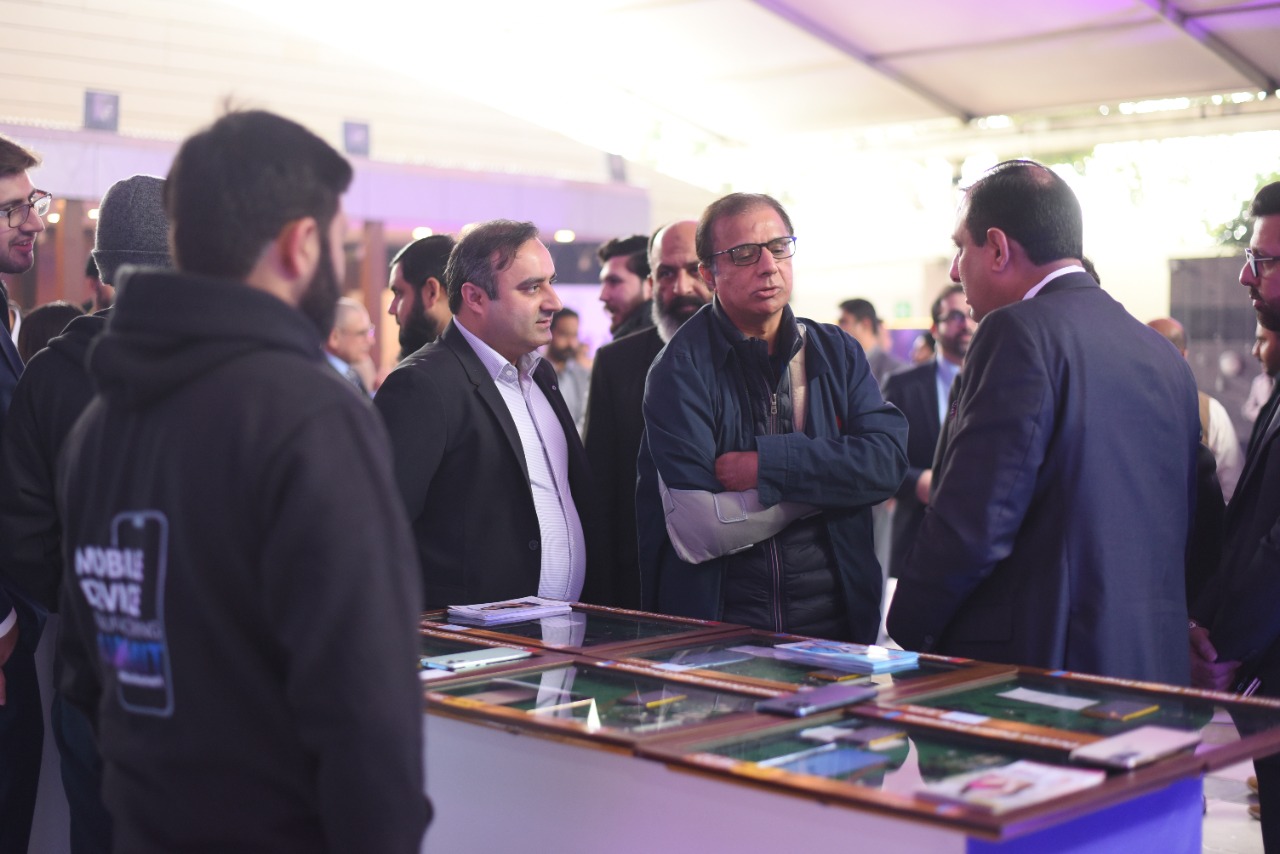Can Local Mobile Manufacturing Boost Pakistan’s Exports? An Insight from Mobile Manufacturing Summit

The demand for technological products has reached new heights, especially for mobile phones. In Pakistan, there is an annual demand of around 36 million mobile units which is staggering. In order to shed light on the enormous potential of the mobile industry, a mobile device manufacturing summit was organized by the Engineering Development Board (EDB), in collaboration with the Pakistan Mobile Phone Manufacturers Association (PMPMA). It is pertinent to mention here that EDB is an attached division of the Ministry of Industries and Production.
Different famous mobile phone manufacturing companies which are operating in Pakistan also participated in the event. There were a total of 31 companies including Xiaomi, Realme, Infinix, Tecno, Itel, Alcatel, G-Five, Oppo, Vivo, Decode, Digit, etc.
Chief Guest and other Major Participants
Makhdoom Syed Murtaza Mahmud, Federal Minister for Industries and Production, was the chief guest during the event. All the relevant stakeholders participated in the event including mobile device manufacturers, government officials from the Ministry of Industries and Production, Pakistan Telecommunication Authority, Ministry of Commerce, National Tariff Commission, Board of Investment, Ministry of IT and Telecom, Federal Board of Revenue, and academia to boost local assembly of mobile devices through enhancing investment and employment opportunities in this sector.
- Officials from PMPMA:
The key officials from PMPMA that participated in the event include Chairman Mian Abdur Rehman, Senior Vice Chairman Muzaffar Piracha, Vice Chairman Aamir Allawala, and deputy vice chairman Zeeshan Mianoor.
Souvenir Distribution:
During the event, souvenirs and shields were presented to different government officials, federal minister, executives of smartphone manufacturing companies, and other industry officials.
Main Purpose of the Event:
The purpose of organizing the event was to get input from all relevant stakeholders regarding the local manufacturing of mobile phones. Furthermore, the massive potential of local production to uplift the economy of the country was also discussed by industry experts. These aspects will be part of our discussion and you will also get the opportunity to learn about some new interesting facts.
Insights regarding the local mobile industry of Pakistan:
The seed of mobile manufacturing in Pakistan was sown back in 2015. There wasn’t a dramatic shift in the industry as we are a third-world country and need more time to take off. However, things turned quickly after 2018, and mobile products in the country kickstarted. Then the government along with other stakeholders formulated the country’s first-ever mobile manufacturing policy. The policy lured a number of renowned international mobile brands in Pakistan.
Currently, except for Apple, all other major mobile brand phones are being manufactured in Pakistan. A total of 31 companies (local & international) have set up their local assemblies in Pakistan. According to the estimate from PMPMA, more than 40,000 people have got employment opportunities because of these developments. Recently, in another endeavor, Pakistan exported around 130,000 ‘Made in Pakistan’ mobile phones to UAE for the first time in history. Furthermore, during the event, one of the industry officials told that around 95% of the phones being used in Pakistan are manufactured under the umbrella of PMPMA, which is a moment of pride for the country.
Pakistan’s local mobile Industry – A massive potential for flourishing Country’s economy
All of the major industry experts and government officials who took part in the event were talking about the potential of local mobile manufacturing in Pakistan. According to the officials, if the local mobile industry flourishes at a good pace and along with the support of the government, it can add a whopping $14 Billion to the national exchequer. In order to validate their assumption, they provide the audience with a number of reasons.
- Examples of Vietnam & India:
First, they gave examples of the local mobile industries of Vietnam, and India. Vietnam is the biggest assembler of Samsung smartphones and earns a staggering $57.5 billion through mobile exports. Similarly, India is also becoming a major smartphone manufacturer and exports millions of mobile phones each year. The interesting part is that both of these countries have started just a few years ago, so Pakistan can take their example and tap the potential of this rich mobile industry.
- Developing as a Sunrise Industry:
Moreover, a senior official from the mobile industry quoted the example of the sunrise industry. He said that as we are a developing country so the concept of a sunrise industry can be applied to us. First, we will have to flourish the assembly line and become exporters. Afterward, we can go into a reverse process and then start producing the raw material (components) and then similarly towards the design (patent).
- China +1 policy:
Another official informed the audience regarding the new China +1 policy and we can benefit from it. Like, if China shifts its 10% mobile production to Pakistan, it will still allow us to earn $15 billion per year.
Steps Required for tapping mobile industry’s potential & Localization:
Consistency of Government Policy:
Government policy must be consistent if local mobile assembly facilities are to be successful because it creates a stable environment for investments and operations. Companies may feel uncertain and at risk as a result of the government’s inconsistent or shifting rules, which may discourage them from investing in the local assembly plant. Foreign investors are more willing to invest in a nation if they are confident that the laws and regulations won’t change frequently because of consistency in policy.
Cascading tariff:
A key technique for encouraging the growth of a local mobile assembly is cascading tariffs. Tariffs that are imposed on products at each stage of manufacturing rather than merely the end stage are known as cascading tariffs. This can make it more affordable to produce things locally rather than import them, which can be advantageous for putting up a local mobile assembly facility.
Applying tariffs at every stage of production may drive up the price of imported items. As a result, businesses may be encouraged to establish local assembly plants because doing so will be more economical.
Utilizing Cheap & Large Workforce:
Pakistan has a cheap and very large workforce that can prove to be really beneficial. It is pertinent to mention here that having a cheap and large workforce can be an important factor in setting up a local mobile assembly facility. A large and low-cost workforce can help to keep labor costs low, making it more cost-effective to produce goods locally. This can make it more competitive to produce goods locally, rather than importing them.
Infrastructural development:
Infrastructural development is crucial for the success of setting up a local mobile assembly facility. Adequate infrastructure is necessary for the smooth functioning of the facility, as well as for the transportation of raw materials and finished goods.
Without good infrastructure, it can be difficult and costly to transport raw materials and components to the assembly facility and to transport finished goods to market. This can increase the cost of production and make it less competitive to produce goods locally.
Check out? Another Setback for Mobile Industry as SBP Issues new Rules For Import Transactions
PTA Taxes Portal
Find PTA Taxes on All Phones on a Single Page using the PhoneWorld PTA Taxes Portal
Explore NowFollow us on Google News!












